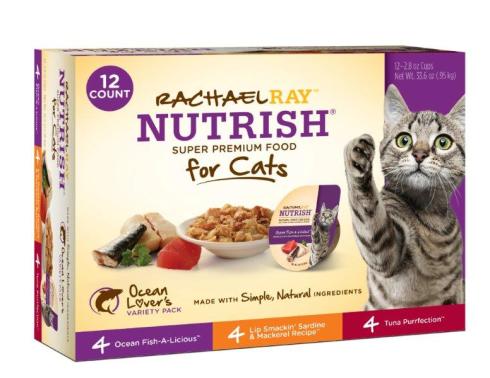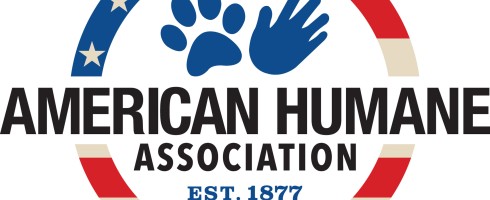Bravo Pet Foods of Manchester, CT is recalling select lots of Bravo Chicken pet foods for dogs and cats due to concerns of the possible presence of Salmonella.
via The Creative Cat – Bravo Pet Foods Voluntarily Recalls Select Lots of Chicken.
Bravo Pet Foods of Manchester, CT is recalling select lots of Bravo Chicken pet foods for dogs and cats due to concerns of the possible presence of Salmonella.
via The Creative Cat – Bravo Pet Foods Voluntarily Recalls Select Lots of Chicken.
On Thursday, Stella & Chewy’s was notified by the Maryland Department of Agriculture (MDA) that it issued a stop sale order on a single lot of Chewy’s Chicken Freeze-Dried Dinner Patties for Dogs, 15 oz. bags (Lot # 111-15) because MDA detected Listeria monocytogenes in the product. There were no reported pet or human illnesses associated with this recall. Since learning this news, we have been working quickly to review the situation to find answers to the important questions on our customers’ minds. As a precautionary measure, we are voluntarily recalling all products from Lot # 111-15 which are listed below.
via Stella & Chewy’s Voluntary U.S. Recall Notice | Stella & Chewy’s Pet Food.
 Ainsworth Pet Nutrition of Meadville, PA is voluntarily recalling five varieties of Rachael Ray™ Nutrish® wet cat food, including Ocean Fish-a-licious, Lip Smackin’ Sardine & Mackerel, Ocean Fish & Chicken Catch-iatore, Tuna Purrfection, and certain lot codes of Paw Lickin’ Chicken & Liver due to potentially elevated levels of vitamin D.
Ainsworth Pet Nutrition of Meadville, PA is voluntarily recalling five varieties of Rachael Ray™ Nutrish® wet cat food, including Ocean Fish-a-licious, Lip Smackin’ Sardine & Mackerel, Ocean Fish & Chicken Catch-iatore, Tuna Purrfection, and certain lot codes of Paw Lickin’ Chicken & Liver due to potentially elevated levels of vitamin D.

WASHINGTON, May 14, 2015 /PRNewswire-USNewswire/ — Every year more than 4.5 million Americans, more than half of them children, are bitten by dogs. As part of the National Dog Bite Prevention Week® (May 17-23, 2015) coalition, American Humane Association, the nation’s first national humane organization and the only one dedicated to protecting the welfare of animals and children, encourages adults to teach children how to avoid dog bites and learn the importance of pet owner responsibility.
“For thousands of years, dogs have been our best friends, providing love, comfort and protection,” says Dr. Robin Ganzert, president and CEO of American Humane Association. “In turn, we must be their best friends and protect all those around us – ourselves, our children, and our dogs – from the dangers and consequences of dog bites through good prevention strategies.”
“The majority of emergency room treatments for dog bites involve children,” says Dr. Kwane Stewart, chief veterinary officer at American Humane Association. “Studies have also shown that the greatest percentage of dog-bite fatalities occurred among children and unsupervised newborns.”
Dogs can bite for many reasons, including improper care and/or a lack of socialization. All dogs, even well trained gentle dogs, are capable of biting however when provoked, especially when eating, sleeping or caring for puppies. Thus, even when a bite is superficial or classified as “provoked,” dogs may be abandoned or euthanized. Therefore, it’s vitally important to keep both children and dogs safe by preventing dog bites wherever possible.
To reduce the number of injuries to people and the risk of relinquishment of dogs that bite, American Humane Association offers the following suggestions:
For Children:
For Dog Owners:
American Humane Association also offers a free online booklet available for families with children called “Pet Meets Baby,” providing valuable information on introducing a new child to a home with a pet – or a new pet into a home with a child: http://www.americanhumane.org/interaction/programs/humane-education/pet-meets-baby.html.
Consider these statistics and tips provided by National Dog Bite Prevention Week® Coalition members:
About American Humane Association
American Humane Association is the country’s first national humane organization and the only one dedicated to protecting both children and animals. Since 1877, American Humane Association has been at the forefront of virtually every major advance in protecting our most vulnerable from cruelty, abuse and neglect. Today we’re also leading the way in understanding the human-animal bond and its role in therapy, medicine and society. American Humane Association reaches millions of people every day through groundbreaking research, education, training and services that span a wide network of organizations, agencies and businesses. You can help make a difference, too. Visit American Humane Association at www.americanhumane.org today.
The authors reviewed toxicological incidents resulting from the use of 100% TTO in dogs and cats reported to the ASPCA Animal Poison Control Center from January 2002 to December 2012. 1
If you are among the 15 percent of Americans who suffer from pet-related allergies, here are strategies for reducing the potential for a reaction.
Left untreated, constant paw licking can lead to other problems, such as hair loss, skin damage, and even bacterial infections that could affect your dog’s ability to walk.
However, it can indicate that your kitty is quite miserable. It also can, in some cases, be a sign of a more serious underlying disease that, if diagnosed promptly, may be very treatable, but without early treatment can indeed be life-threatening.
My dog has fatty tumors and I would like to know if I should have them surgically removed. They are not cancerous.
Pet food labels are legal documents, so when looking at labels pay close attention to the AAFCO statement, guaranteed analysis and ingredient list.
via What is and is Not Included on a Cat Food Label | petMD.